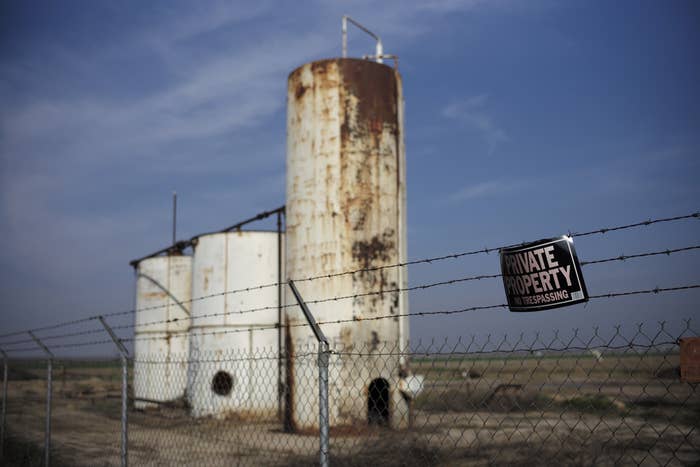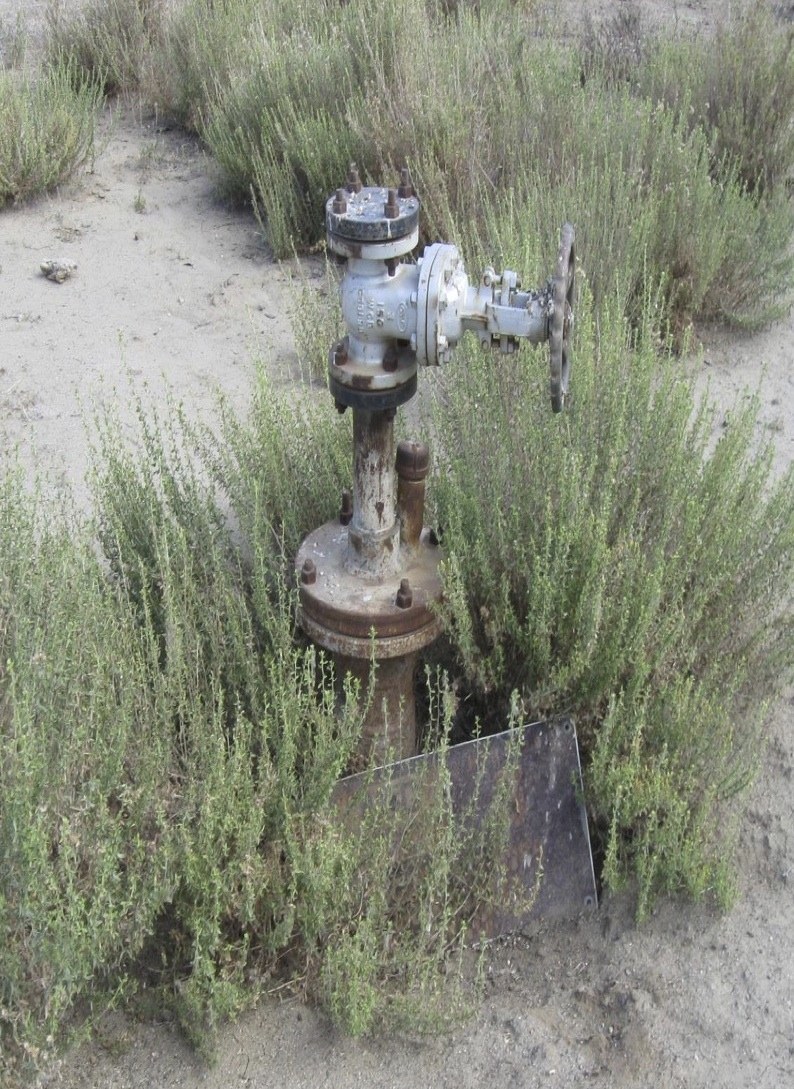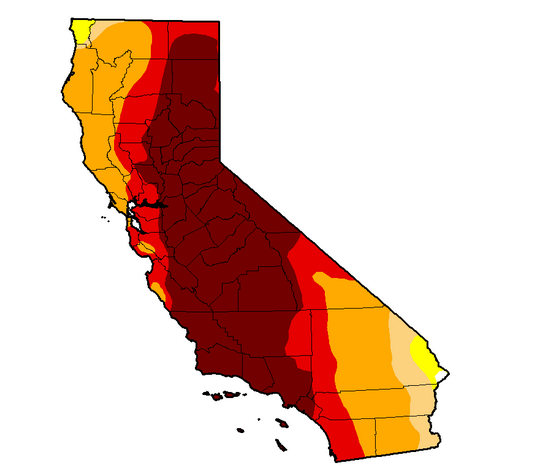
Oil companies in California are injecting toxic waste into the state's dwindling underground water supplies and the government is letting them do it, according to a new lawsuit filed Thursday.
The lawsuit — which was filed jointly by Earthjustice, the Center for Biological Diversity and the Sierra Club — claims that there are 2,500 wells injecting polluted water into the ground. And the agency responsible for protecting California's has publicly acknowledged the problem. But, the lawsuit contents, instead of working to stop the practice, the the California Department of Conservation, Division of Oil, Gas, and Geothermal Resources passed regulations allowing the injections to continue in most cases until 2017.
The agency, which is a defendant in the case, did not immediately respond to BuzzFeed News' request for comment.
The practice of injecting waste water into the ground goes back decades. The waste is produced as either natural fluids come to the surface while extracting the oil, or as companies blast water and steam to into the ground, a process commonly known as hydraulic fracturing, or "fracking."

Either way, the resulting water ends up filled with toxic chemicals. Hollin Kretzmann, an attorney representing the Center for Biological Diversity, told BuzzFeed News one of the most dangerous chemicals in the waste is benzene, a cancer-causing carcinogen. Kretzmann said there are about 50,000 wells in California injecting the tainted water into the ground.
"The reality is this waste water is inherently dangerous so there's no good solution," Kretzmann said. "There's no good way to get rid of it."
Companies operating injection wells include Freeport-McMoRan, Linn Operating, Inc., and Chevron, according to data provided to BuzzFeed News by the Center for Biological Diversity. And for each gallon of extracted petroleum, oil companies end up with about 13 gallons of waste water, the Associated Press has reported.
This becomes a serious — and illegal — problem when the polluted water gets into clean aquifers, or underground water supplies, that the EPA has set aside for public use. In emergency regulations announced last month, government regulators acknowledged finding "over 2,500 wells that may have been improperly approved for injection."
The Center for Biological Diversity has mapped those wells:
Many of these injection wells are within a mile of water sources that are being used for consumption or irrigation, according to the lawsuit. And an analysis by the AP earlier this year discovered that 46% of those 2,500 wells received permits or started injecting waste sometime during the last four years.
The affects of injected waste water are already being felt. In a lawsuit filed last year, Palla Farms has argued that water injections from oil companies raised the amount of salt and boron in groundwater the farm uses for irrigation, according to The Bakersfield Californian. As a result, the farm reportedly had to uproot cherry trees and has seen production fall.
Attorneys for Palla Farms did not immediately respond to BuzzFeed News' request for comment Wednesday.

Government regulators have shutdown 23 of the 2,500 waste water injection wells, according to the lawsuit. But the emergency regulations announced in April will allow the others to continue pumping water into the ground until 2017.
Kathryn Phillips, director of the Sierra Club of California, criticized the regulations Wednesday in a interview with BuzzFeed News, saying they are "action in the wrong direction."
"It’s not action to protect the public," she said.
Phillips added that allowing the injections to continue during historic water shortages is particularly egregious.
"We’re at a really bad place in this drought," Phillips added.

The lawsuit repeatedly invokes dwindling water supplies, arguing that protecting California's aquifers "is crucial during dire circumstances like the current drought."
Kretzmann also slammed the latest round of regulations, saying they are a "stark and troubling" abuse of power because they allow continued injections of toxic water into aquifers that are supposed to be for people.
"The oil industry in California is very used to getting its way," Kretzmann said. "The businesses as usual scenario is the oil industry gets to do what it wants and the rest of us suffer the consequences."
